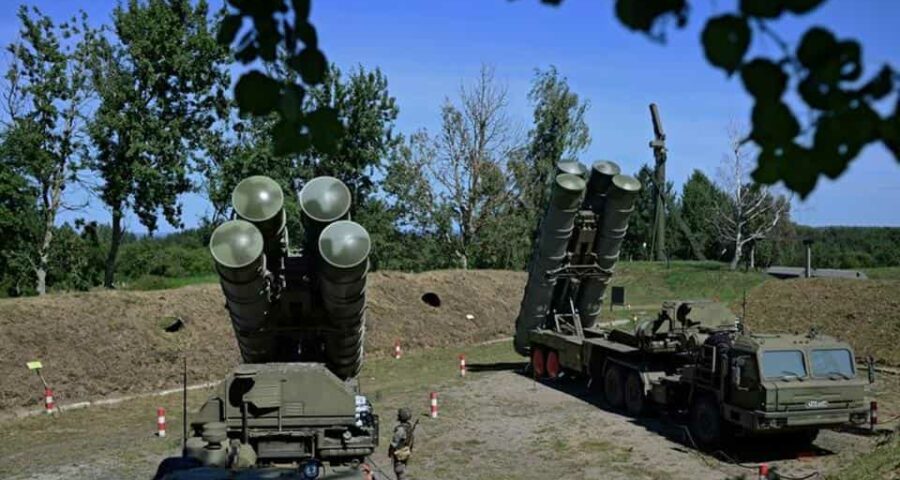With the possibility of sanctions hanging over India’s $5.4-billion deal with Russia for the S-400 air defence systems, outgoing US envoy Kenneth Juster said on Tuesday that New Delhi may need to make hard decisions regarding the acquisition of military hardware.
The US recently imposed secondary sanctions on Turkey under the Countering America’s Adversaries Through Sanctions Act (CAATSA) for a $2.5-billion deal with Russia for S-400 systems, and experts have warned that India could face similar strictures.
Also Read: China flies choppers over Lhasa in military drill to tame Tibet
Participating in a question and answer session after delivering a farewell address at an event organised by the Observer Research Foundation, Juster said sanctions under CAATSA weren’t aimed against friends of the US. However, he cautioned that India might soon need to make choices between “trade-offs” and acquiring hi-tech US military hardware.
“The CAATSA sanctions were never designed to harm friends and allies. They were aimed at a particular country. And there are many variables involved in it and I think…I would put that issue to the side because I see other issues that potentially affect the future of the defence relationship,” he said.
India has sought to keep its options open on the issue of arms purchases and the country’s leadership has signalled its intent to continue with the acquisition of military hardware from Russia, which accounts for more than 60% of the weapons systems of the three services. Russia too has said the S-400 deal is on track despite the threat of US sanctions and the five systems ordered by India will be delivered over a five-year period.
Also Read: Ladakh was the starting point. India-China ties are getting complicated
However, Juster said India’s approach had its limitations and “choices that might ultimately need to be made”.
“As systems get more technologically advanced, country A that does not get along with country B will be less willing to sell technology that could potentially be compromised to country B,” he said, in an oblique reference to concerns that the S-400 could gather the electronic signatures of US-origin aircraft operated by India.
“We haven’t hit that point yet but that could come down in the future and that will be an issue that – there are trade-offs. India has to decide how much it matters to get the most sophisticated technology, how much it matters to be as inter-operable as it can be, within its technology and potentially with other friendly forces, and how much it matters to diversify its sources of procurement,” he added.
Only the Indian government can decide on the trade-offs but this issue could be a constraint to the transfer of advanced technology and the broader defence relationship, he said.
The Indian government’s choices will set the “ceiling” for defence cooperation. “From the US perspective, we’d like to do more, and in a sense, I think you’re pushing on an open door,” Juster said.
Source: Read Full Article

